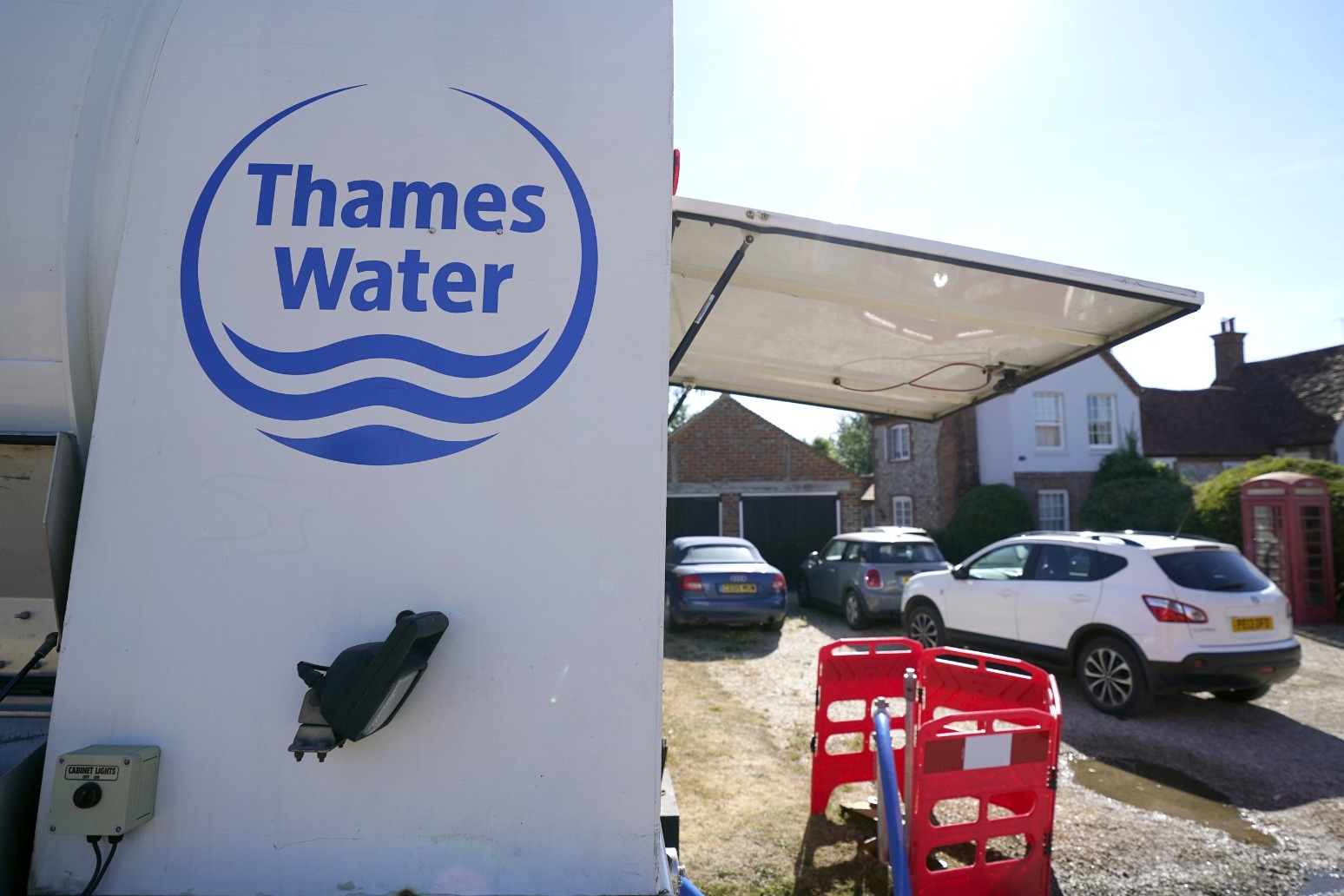
Troubled Thames Water has said it needs to hike customer bills by up to nearly 60% by 2030 or warned it will become “uninvestible”.
Britain’s biggest water supplier made the shock demand in its response to Ofwat’s draft determination on water company plans as the wider water industry also issued a stark warning against the regulator’s proposals to cap household water charges.
Ofwat proposed in its draft determination in July that water firms should be allowed to increase bills by a third less than they had requested on average, capping it at around £19 extra a year.
Thames Water put forward plans in April to increase bills by 44% in the five years to 2030.
But Ofwat has proposed that Thames Water bill increases should be capped at 23% over that period and spending at £16.9 billion.
Debt-laden Thames Water has now come back saying that it believes customer bills need to rise by far more than Ofwat has proposed – and even more than the firm itself first put forward.
Thames Water said Ofwat’s proposed cap “is not tenable and renders our plan uninvestible” and could prevent “the turnaround and recovery of the company”.
Chris Weston, chief executive of Thames Water, said: “The money we’re asking for from customers will be invested in new infrastructure and improving our services for the benefit of households and the environment.
“They are not being asked to pay twice, but to make up for years of focus on keeping bills low.”
It comes as the water sector issued a warning to Ofwat that its bill cap plans could create a “material risk” that suppliers may fail to raise enough cash to invest in stopping sewage leaks.
Trade group Water UK said the proposals could hamper firms’ ability to improve their services and drive away investors needed for a multibillion-pound spending plan to bring Britain’s water infrastructure up to scratch.
But there has been mounting public and political fury around firms’ polluting of waterways with sewage spills as they continue to hand dividends to shareholders, and bonuses to executives – something which Labour has pledged to clamp down on.
Sewage spills into England’s rivers and seas more than doubled in 2023.
Thames Water is also in the grip of a funding crisis and has more than £15 billion of debt, casting uncertainty over its future.
It said in July that it only has enough money to continue trading until the end of May 2025.
Bosses are scrambling to secure a major cash injection to keep it afloat, and have held talks with both existing shareholders and outside investors.
Thames Water said the main driver of the latest increase is “due to an update to our customer numbers which sees a customer reduction from our original plan”, as well as previously forecast increases in spending.
The company said it wants to invest £20.7 billion in its services over the period, including upgrading its ageing infrastructure.
As well as looking to cap its bill rises, Ofwat has also said it intends to appoint an independent monitor to Thames Water who will supervise the company’s turnaround plan and report back to the regulator.
In its response to Ofwat, Thames proposed raising average yearly water bills to as much as £696, a 59% increase, if it is given extra spending allowances by the regulator.
The average bill over the five-year period from 2025 to 2030 would be £638 under the proposal.
Average bills in 2023 to 2024 were £433.
Water UK chief executive David Henderson told BBC Radio 4’s Today programme that Britons were “right to be angry” at water companies for sewage spills, but said “we have a system that’s tired and old”.
He warned that Ofwat’s proposals would put off investors.
“No rational investor is going to put their money into water right now,” he said.
A spokesman for the Department for Environment, Food & Rural Affairs (Defra) said the water firm spending plans are “fundamentally a matter for Ofwat… however, the Secretary of State is clear we need to reset the nation’s water industry”.
He added: “We were elected on a mandate to clean up Britain’s rivers, lakes and seas. That is exactly what we will do.”
Mike Keil, chief executive of the Consumer Council for Water, said: “Very few of Thames Water’s customers felt its original proposal to increase bills by 44% before inflation was affordable and many people will be angry at the company’s call for a larger rise.
“Customers have already paid a high price through the company’s poor complaints record and service failures and it’s time people were treated fairly.”
Published: by Radio NewsHub









